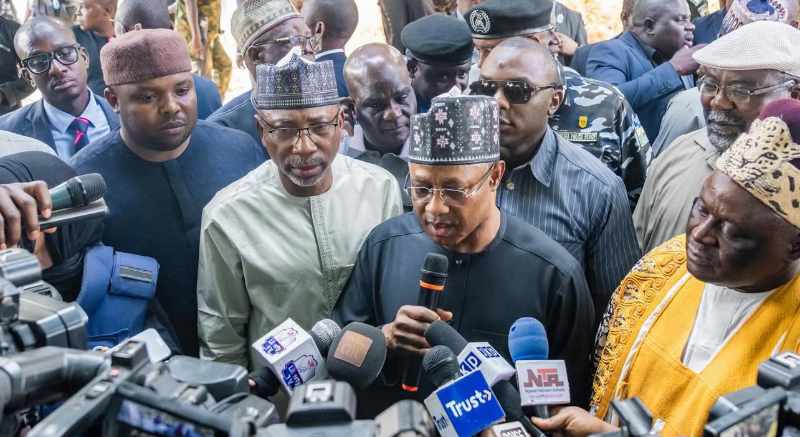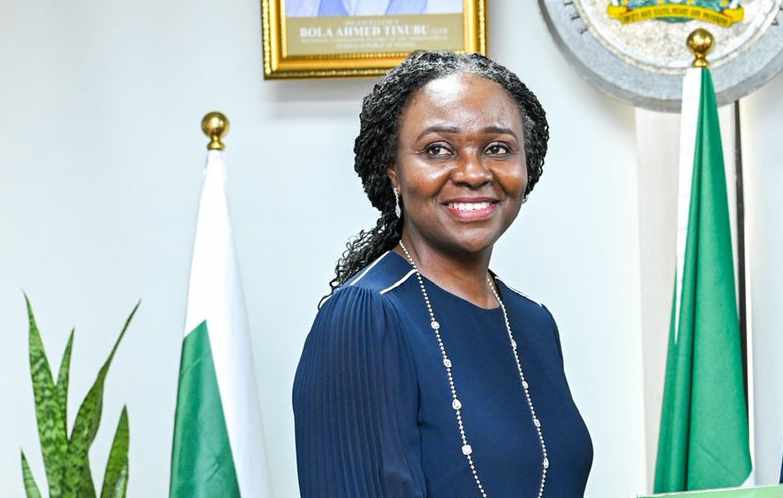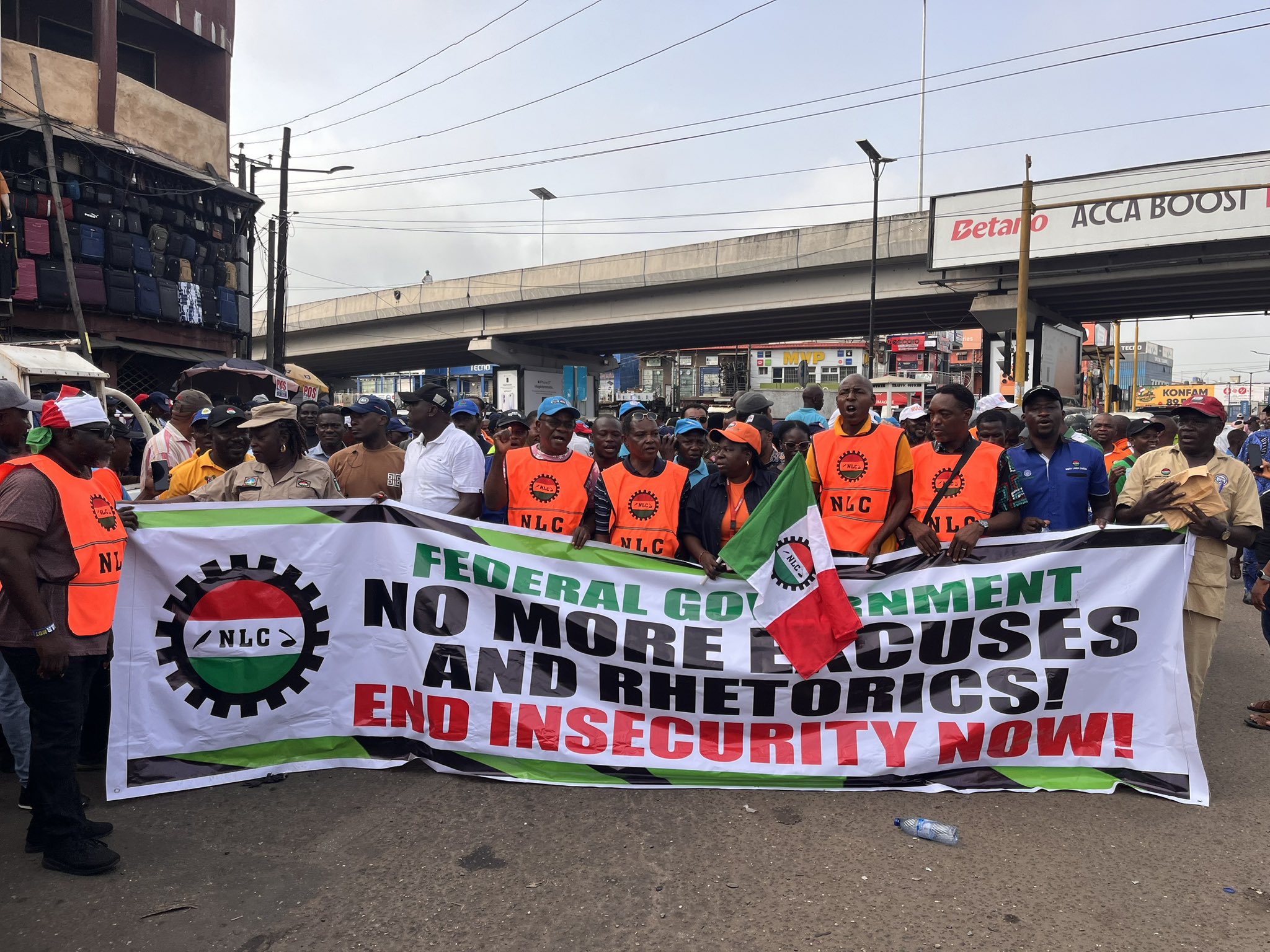Mass defections accelerate the PDP’s terminal decline
Published on 2025 May 12, Monday Back to articles
The Peoples Democratic Party (PDP) may be counting down its days as Nigeria’s main opposition party. It is haemorrhaging members at such a rate that will make it virtually impossible to recover and make it competitive to challenge the ruling All Progressive Congress (APC) in future elections. A decade after losing power in the 2015 election, the PDP is on its last legs as a political party unless something dramatic happens to reverse its declining fortunes.
About two weeks ago Delta State’s Governor Sheriff Oborevwori defected with all the state’s PDP’s elected members (Nigeria Politics & Security – 28.05.25). More PDP political office holders have now revealed their plans to move to the APC whose chairman, Abdulahi Ganduje, has said that he is not averse to Nigeria becoming a one-party state if that is what the country wants.
Three Kebbi State senators visit President Tinubu who gave them his blessing to switch parties. It is the first major defection in which he has been directly involved, which indicates that he fully supports the defections from a weakened PDP which is emptying and boosting his own re-election chances. This will be a huge blow to the PDP which now only has 34 Senators. On 8 May, citing the PDP’s internal divisions, three Katsina State MPs announced their defections to the APC. The party is also losing state level lawmakers.
Meanwhile, as expected for some time, the governor of South-South’s Akwa Ibom State, Umo Bassey Eno has formally indicated that he will soon join the APC. On 30 April he likened the PDP to an aircraft that has developed a fault, which means he must consider taking a new aircraft to reach his destination. Recently he has been cementing his relationship with his 2007-2015 predecessor and current Senate speaker, Godswill Akpabio, who is a member of the APC. His official defection is expected to happen very soon which will leave only Bayelsa State in the South-South controlled by the PDP.
The PDP is now too divided to stop its members from leaving. It scheduled a meeting of its National Executive Committee (NEC) for 27 May but its remaining eight governors are still unable to agree on how best to zone the offices. Those from the South led by Oyo State’s Seyi Makinde want the party’s chairmanship position to remain in the North, with the current acting chairman Umar Damagum retaining the post. This will ensure that the party’s presidential position is eventually zoned to the South.
This is reportedly opposed by others led by the Bauchi State’s second-term Governor Bala Mohammed who is also the chairman of the PDP Governors Forum. The Northeast’s leading politician is reportedly pushing for the chairmanship to move to the South because of his own presidential ambitions .
In between is the veteran and three-times loser, Atiku Abubakar, whose presidential ambition is blamed for the crisis in the PDP. He is reportedly pushing to remove its current National Working Committee (NWC) who he alleges are beholden to the Minister of the Federal Capital Territory, Nyesom Wike. The party called a meeting of its current and former governors along with other party office holders on 11 May to discuss its fate in the face of mass defections before its planned NEC meeting on 27 May.
The next NEC meeting — now scheduled for 27 May — has already been delayed at least four times since it was first muted early last year. The inability to agree on the zoning formular and even on who is the recognised national secretary could force a further delay which will only further defections from the disunited party.
Its biggest challenge is that it no longer has a strongman with deep financial pockets that can stand up to the APC. Wike played that role up to 2023 but he lost the party primary to Abubakar. He is now playing the opposite role with the huge federal budget at his disposal, by using it to destabilise the PDP. The only governor that could have countered him is his Rivers State successor Siminalayi Fubara. However, with some support from the presidency, Fubara has been neutralised and is now fighting for his political future (Nigeria Politics & Security – 05.05.25). Delta and Akwa Ibom, the two other states that have large budgets and can use it to support the PDP have also tilted towards the APC. This leaves the party in a very weak financial position.
None of the other governors fighting for influence in the party, have the deep pockets to counter Wike and the Presidency. Abubakar no longer has the kind of money that will command political loyalty. Even though he remains the most popular politician that the North can currently put forward for the Presidency, he needs financial muscle to command the loyalty of politicians who also need money to win elections.
Most of those defecting know that they are more likely to get funding and support from businesses and contractors if they are aligned to the Presidency than if they are in opposition. Without financial muscle, the PDP will continue to lose its members and become too weak to offer a viable candidate in 2027.
Nominally the PDP currently has 11 governors but those in Akwa Ibom and Rivers are about to defect, as are those in Adamawa, Enugu, and Plateau states. The remaining six are not secure and some will lose their seats if the APC wins the Presidency which is now almost certain because all the opposition parties are struggling. The APC is set to become the dominant party across all states just as the PDP was in 2007. It is very unlikely that the PDP will recover from a heavy defeat in 2027 and that it will become a fringe player in the country’s political space.
It may, however, be too early for the APC to start a victory lap. The defections are creating their own tensions because the arrival of powerful PDP governors and senators means that the original APC members are being marginalised to accommodate the new entrants. This is creating its own bad blood in the APC which is likely to spill over as the 2027 elections gets closer and new members grab the party’s tickets. We are likely to start to see some reverse defections to the PDP and other parties from the APC as the friction starts boiling over into open conflicts. These latter day defections could change the political dynamics that now appear to be overwhelmingly in favour of the ruling party.
This excerpt is taken from our Nigeria Politics & Security weekly intelligence report. Click here to receive a free sample copy. Contact info@menas.co.uk for subscription details.


